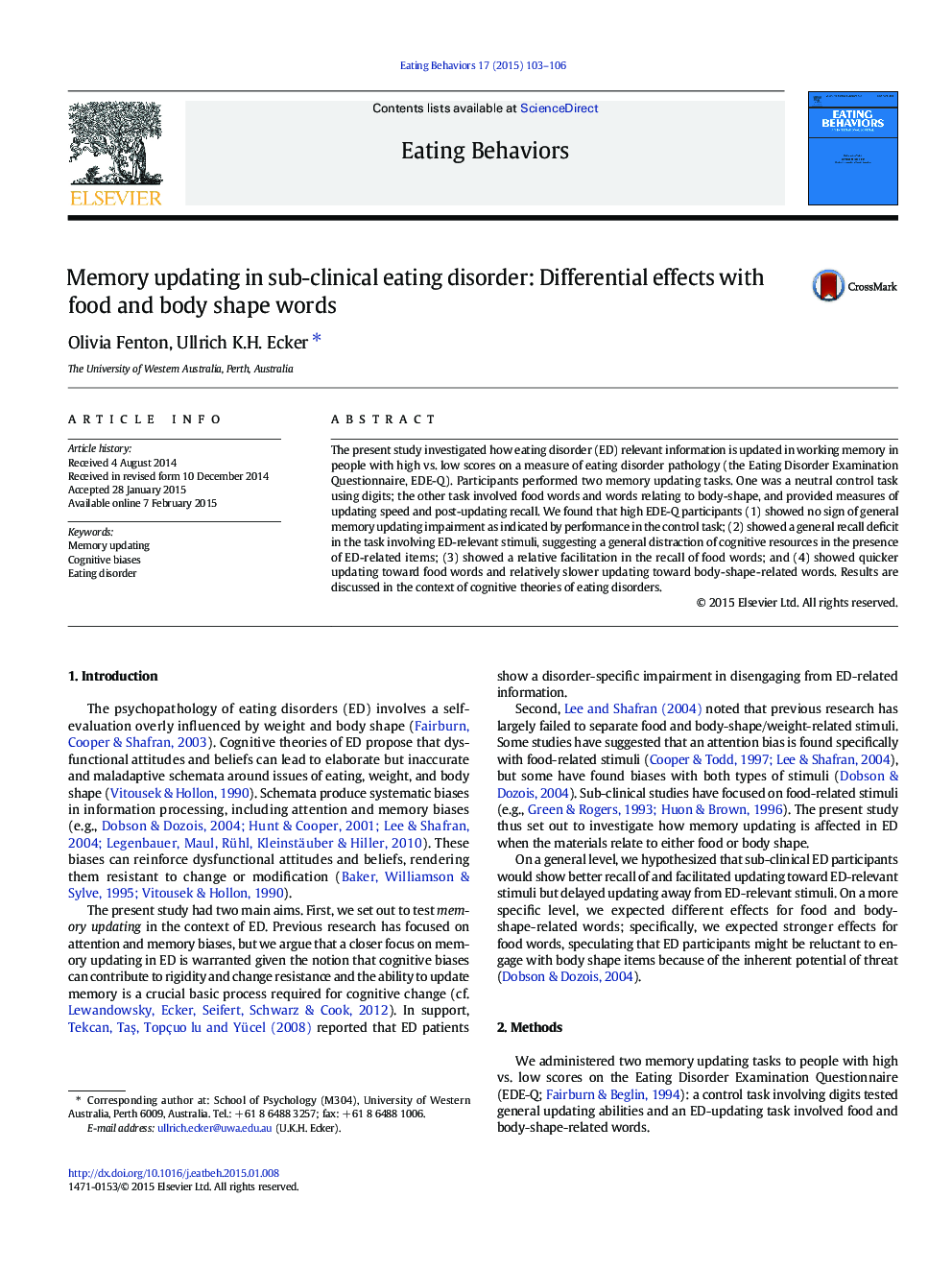| Article ID | Journal | Published Year | Pages | File Type |
|---|---|---|---|---|
| 7265363 | Eating Behaviors | 2015 | 4 Pages |
Abstract
The present study investigated how eating disorder (ED) relevant information is updated in working memory in people with high vs. low scores on a measure of eating disorder pathology (the Eating Disorder Examination Questionnaire, EDE-Q). Participants performed two memory updating tasks. One was a neutral control task using digits; the other task involved food words and words relating to body-shape, and provided measures of updating speed and post-updating recall. We found that high EDE-Q participants (1) showed no sign of general memory updating impairment as indicated by performance in the control task; (2) showed a general recall deficit in the task involving ED-relevant stimuli, suggesting a general distraction of cognitive resources in the presence of ED-related items; (3) showed a relative facilitation in the recall of food words; and (4) showed quicker updating toward food words and relatively slower updating toward body-shape-related words. Results are discussed in the context of cognitive theories of eating disorders.
Related Topics
Life Sciences
Neuroscience
Behavioral Neuroscience
Authors
Olivia Fenton, Ullrich K.H. Ecker,
